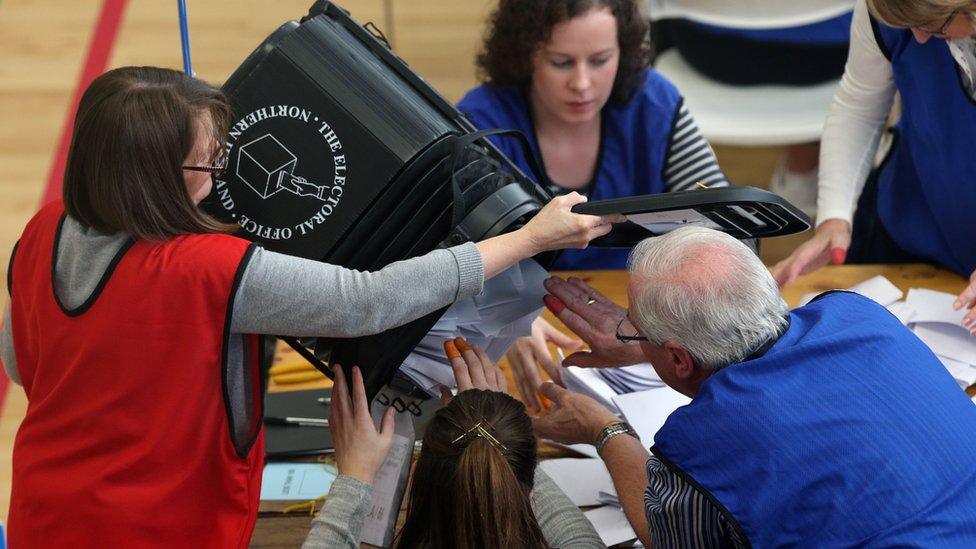Michelle O'Neill calls for 'urgent' referendum on Irish unity
- Published
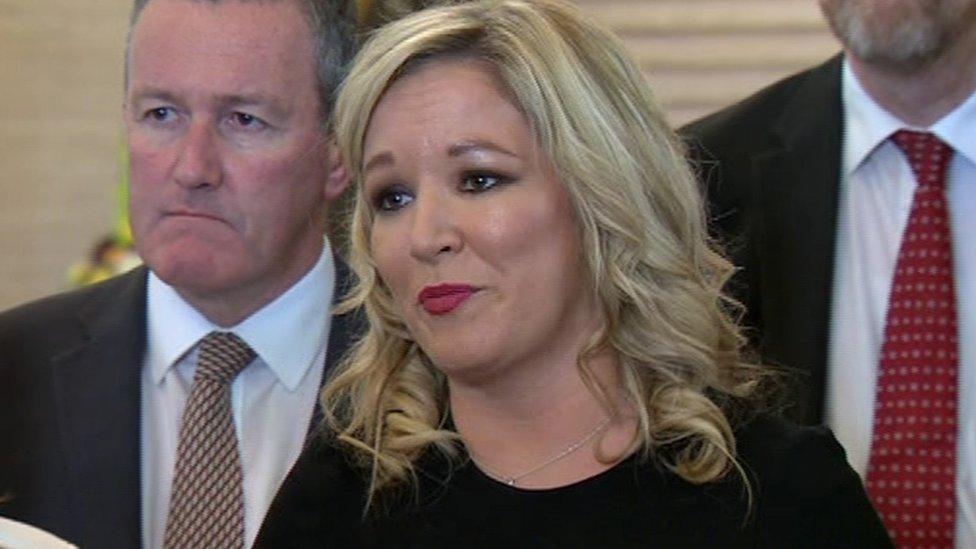
Michelle O'Neill said Brexit would be 'a disaster'
Sinn Féin has renewed its call for a referendum on Irish unity "as soon as possible".
Its northern leader, Michelle O'Neill, said the urgency was increased by the prospect of Brexit, which would be "a disaster for the people of Ireland".
She was speaking shortly after Scottish First Minister Nicola Sturgeon said she was to seek a second referendum on independence.
Mrs O'Neill said this was "a matter for the Scottish people".
Referring to Irish unity, the Sinn Féin MLA said it was now "over to the people to have their say in relation to the future".
She was speaking during a break from talks at Stormont aimed at restoring the power-sharing executive.
MLAs have been attending a ceremony at Parliament Buildings to sign the roll of membership.
They were due to elect a new speaker, but this has been postponed for two weeks.
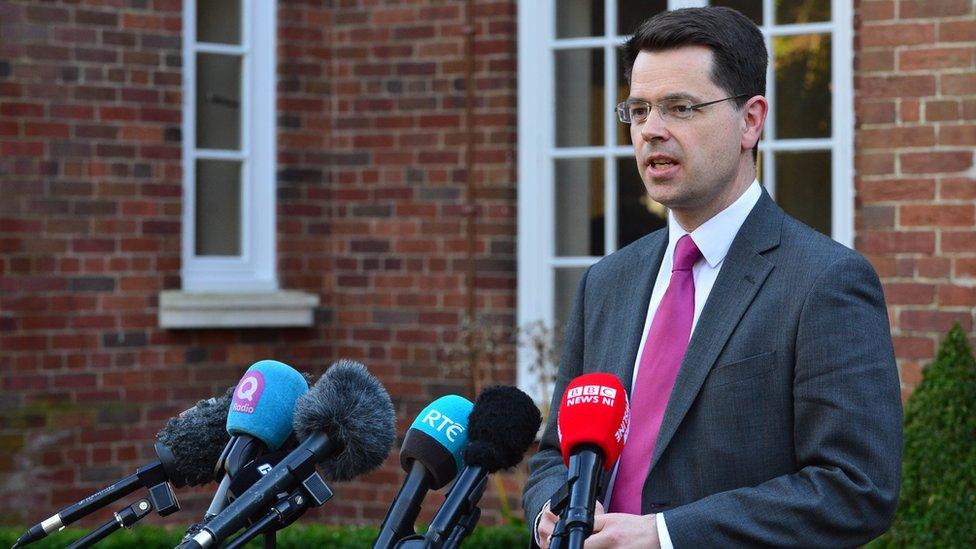
Northern Ireland Secretary James Brokenshire has been hosting talks at Stormont
The Northern Ireland Secretary, James Brokenshire, has cancelled a planned trip to the United States this week to concentrate on the Stormont talks.
Mr Brokenshire had been due to travel to Washington on Wednesday for two days.
He was due to meet President Trump as part of St Patrick's Day celebrations.
Talks at Stormont are a "critical stage" and his focus is with them, a senior government source told the Press Association.
"He is just focused on getting the right result and getting an agreement by 27 March," said the source.
"The deadline is looming. He will have no other option by law but to call another election if there is no agreement by then."
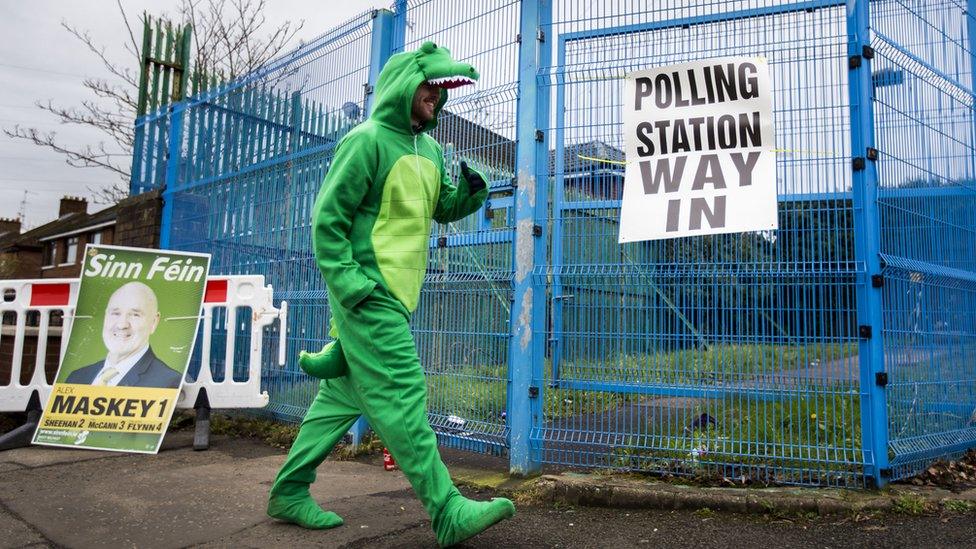
Voters in Northern Ireland went to the polls earlier this month after a snap election was called
On Thursday, Mr Brokenshire warned there could be "significant consequences" if the discussions to try to restore power sharing end in deadlock.
If Northern Ireland's parties fail to reach a deal by 27 March, voters face the prospect of going back to the polls for a second snap election within months.
The assembly election on 2 March was the second in 10 months and was called after the collapse of a coalition led by Arlene Foster's DUP and Sinn Féin's Martin McGuinness.
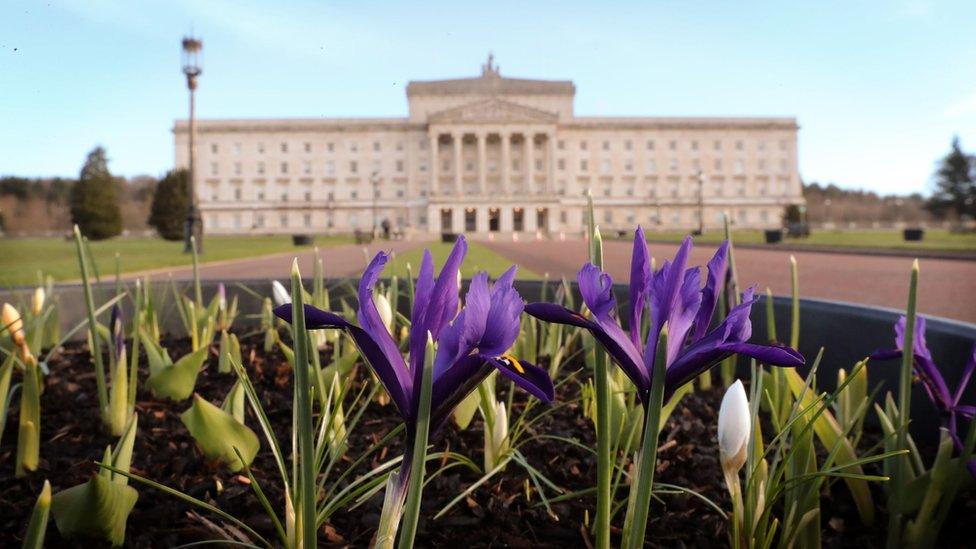
Northern Ireland's political parties have three weeks to reach agreement on forming a new executive
Mr McGuinness resigned over Mrs Foster's refusal to step aside as first minister pending an inquiry into the Renewable Heat Incentive (RHI) scheme, which was set up under her watch as Minister of Enterprise, Trade and Investment and could cost the Northern Ireland tax payer £490m.
The election saw an end to the unionist majority at Stormont, with Sinn Féin now holding just one seat fewer than the Democratic Unionist Party (DUP).
If no executive is formed, another election can be called, and ultimately power could return to the UK parliament at Westminster for the first time in a decade.
- Published10 March 2017
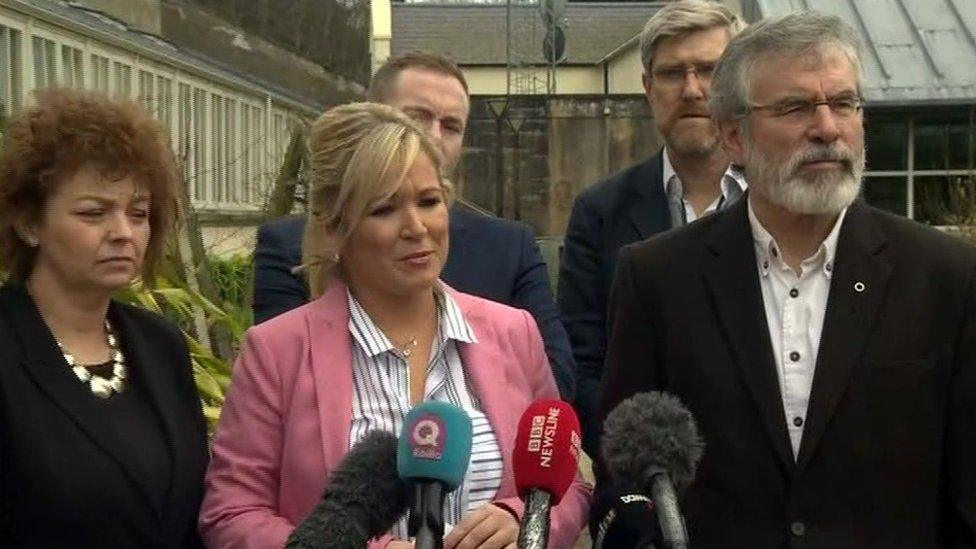
- Published9 March 2017
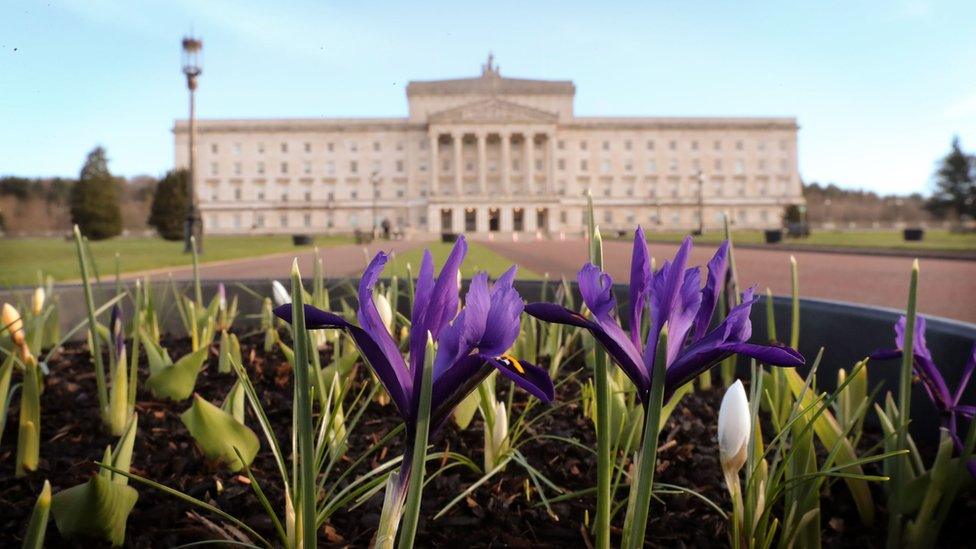
- Published4 March 2017
